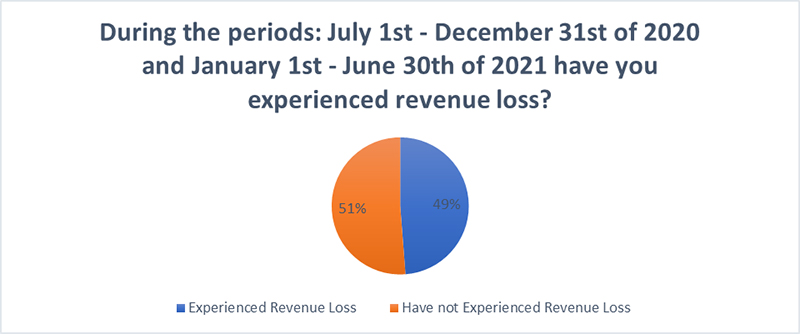Khamiah Alderman, Student and Intern, North Carolina Center for Nonprofits
Are nonprofits any better-positioned to weather the lingering effects of a global pandemic?
In 2020, COVID changed our lives forever. The nonprofit sector certainly felt the ripple effects of a global pandemic that tested even the most rigorous disaster response and recovery plans. COVID forced many nonprofits to close after depleting their budgets and tested the wherewithal of a workforce that's already stretched to the very edge of its limitations on a regular basis. As further evidence, research has shown that 53% of nonprofits have had a greater demand for their services during the COVID pandemic. One-third are experiencing higher operating costs. Four in 10 nonprofits have cut operating costs. One-third have pared back programs or services. These problems made it challenging for nonprofits to continue their already challenging work uplifting vulnerable and marginalized communities.
Despite these challenges, nonprofits have found ways to adapt, and even thrive, despite a lingering global pandemic. After conducting research, including our 2021 COVID survey* of nonprofits across North Carolina, we’ve compiled a list of the most salient lessons learned and even a few silver linings experienced by the nonprofit sector.
Remote Work Infrastructure
Many nonprofits were forced to shut down their physical locations and transition to working remotely due to COVID restrictions, making it difficult to operate as they normally would have in order to serve their communities. However, working remotely has led to several positives, including:
- Nonprofits saving on rent;
- Boosting employee morale;
- Enabling employers to hire talent unconstrained by geographical limitations; and
- Increased productivity due to technology mitigating some of the more tedious tasks.
While some of these silver linings have made it easier to reach the communities served by nonprofits, it has not come without its fair share of challenges. Nevertheless, our sector has continued to adapt, and those adaptations have led to new ways of delivering our programs and services born out of necessity.
Strategic Organizational & Crisis Communication Plans
Of course, most of us were not prepared for nor did we expect a global pandemic. Because of this, nonprofits did not have a plan of action for when a crisis, like a pandemic, occurs. Nonprofits have been in essence forced to hone in on improving their risk management plans, transforming required policies to make them more adaptable to the safety of their staff, volunteers, and communities they serve as well as developing policies and procedures that are even more crisis-proof.
Funding Opportunities
Our 2021 COVID survey asked nonprofit respondents to tell us about their revenue losses due to the pandemic from July 1-December 31, 2020 and January 1-June 30, 2021. Out of the 123 responses, 48.7% experienced revenue loss.

COVID exacerbated the funding issues nonprofits were experiencing initially. However, funders responded by offering more operating funds to ensure that the safety net of programs and services provided by nonprofits remained intact as much as possible.
Closing Thoughts
We acknowledge that the effects of COVID are still lingering. These silver linings are just the tip of the iceberg and may not have been experienced or realized by the most vulnerable among us, including nonprofits and those they serve. So we continue to ask, what unexpected outcomes has your nonprofit experienced (whether good or bad) and how can the Center continue to help uplifting the needs and collective best interests of our sector? We hope you will continue to share with us.
*The Center appreciates the respondents for completing the 2021 COVID survey. The survey received 123 responses from nonprofit organizations statewide and was useful in developing this article.
Works Cited
https://philanthropynewsdigest.org/features/book-reviews/the-post-pandemic-nonprofit-12-disruptive-trends-your-nonprofit-must-master
https://www.washington.edu/news/2021/12/14/nonprofits-show-resilience-and-initiative-during-second-year-of-pandemic
https://philanthropynewsdigest.org/features/the-sustainable-nonprofit/strategies-for-nonprofit-success-in-a-post-pandemic-landscape
https://www.wealthengine.com/the-impact-of-covid-19-on-nonprofits-for-2021
Khamiah Alderman is from Charlotte and is a senior majoring in Public Policy at the University of North Carolina at Chapel Hill (expected graduation May 2023). She is interning with the North Carolina Center for Nonprofits during the summer 2022 through the Z. Smith Reynolds Foundation’s Non-Profit Internship Program. She is passionate about education policy and closing the racial achievement gap in North Carolina. In her free time, Khamiah enjoys reading and expressing her love for reading by ensuring that children have at-home libraries. When she is not doing schoolwork or reading, she is volunteering for Book Harvest or finding opportunities to expand her knowledge and skill set on education policy.